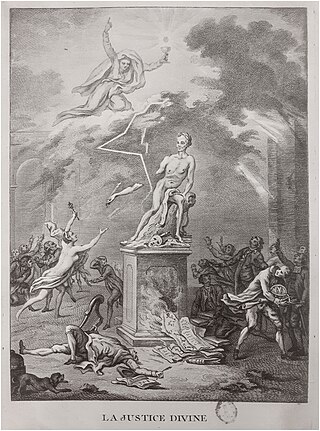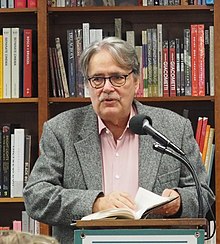Biography
Born in 1947, James Miller was Chair of Liberal Studies at the New School for Social Research from 1992 until 2013. He is Professor of Politics and Liberal Studies at The New School. His most recent book, Examined Lives: From Socrates to Nietzsche , was published by Farrar, Straus and Giroux. He is the author of five other books: Flowers in the Dustbin: the Rise of Rock & Roll, 1947-1977, winner of an ASCAP-Deems Taylor award and a Ralph Gleason BMI award for best music book of 1999; The Passion of Michel Foucault (1993), an interpretive essay on the life of the French philosopher and a National Book Critics Circle Finalist for General Nonfiction, which has been translated into nine languages; Democracy is in the Streets: From Port Huron to the Siege of Chicago (1987), an account of the American student movement of the 1960s, also a National Book Critics Circle Finalist for General Nonfiction; Rousseau: Dreamer of Democracy (1984), a study of the origins of modern democracy; and History and Human Existence - From Marx to Merleau-Ponty , an analysis of Marx and the French existentialists.
The original editor of The Rolling Stone Illustrated History of Rock and Roll (1976), he has written about music since the 1960s, when one of his early record reviews appeared in the third issue of Rolling Stone magazine. Subsequent pieces on music have appeared in The New Republic , The New York Times and Newsweek , where he was a book reviewer and pop music critic between 1981 and 1990. Pieces on philosophy and history have appeared in The London Review of Books, The New York Times Book Review. In 2000, the magazine Lingua Franca published his best-known essay, Is Bad Writing Necessary? George Orwell, Theodor Adorno, and the Politics of Language.
Besides publishing in such peer-reviewed academic journals as History and Theory and Political Theory, he has contributed to a variety of reference works, from Encyclopædia Britannica [2] and A New Literary History of America, [3] published by Harvard in 2009, to the Dictionnaire de Philosophie Morale edited by Monique Canto-Sperber in 1996.
From 2000 to 2008, he edited Daedalus, the journal of the American Academy of Arts & Sciences. [4] He has been a Guggenheim Fellow, an NEH Fellow twice, and in 2006-2007 he was a Fellow at the Dorothy and Lewis B. Cullman Center for Scholars and Writers at the New York Public Library. A native of Chicago, he was educated at Pomona College in California, and at Brandeis University, where he received a Ph.D. in the History of Ideas in 1976.

Maurice Jean Jacques Merleau-Ponty was a French phenomenological philosopher, strongly influenced by Edmund Husserl and Martin Heidegger. The constitution of meaning in human experience was his main interest and he wrote on perception, art, politics, religion, biology, psychology, psychoanalysis, language, nature, and history. He was the lead editor of Les Temps modernes, the leftist magazine he established with Jean-Paul Sartre and Simone de Beauvoir in 1945.
Continental philosophy is a term used to describe some philosophers and philosophical traditions that do not fall under the umbrella of analytic philosophy. However, there is no academic consensus on the definition of continental philosophy. Prior to the twentieth century, the term "continental" was used broadly to refer to philosophy from continental Europe. A different use of the term originated among English-speaking philosophers in the second half of the 20th century, who used it to refer to a range of thinkers and traditions outside the analytic movement. Continental philosophy includes German idealism, phenomenology, existentialism, hermeneutics, structuralism, post-structuralism, deconstruction, French feminism, psychoanalytic theory, and the critical theory of the Frankfurt School as well as branches of Freudian, Hegelian and Western Marxist views. There is widespread influence and debate between the analytic and continental traditions; some philosophers see the differences between the two traditions as being based on institutions, relationships, and ideology rather than anything of significant philosophical substance.

The Counter-Enlightenment refers to a loose collection of intellectual stances that arose during the European Enlightenment in opposition to its mainstream attitudes and ideals. The Counter-Enlightenment is generally seen to have continued from the 18th century into the early 19th century, especially with the rise of Romanticism. Its thinkers did not necessarily agree to a set of counter-doctrines but instead each challenged specific elements of Enlightenment thinking, such as the belief in progress, the rationality of all humans, liberal democracy, and the increasing secularisation of society.
Social philosophy examines questions about the foundations of social institutions, behavior, power structures, and interpretations of society in terms of ethical values rather than empirical relations. Social philosophers emphasize understanding the social contexts for political, legal, moral and cultural questions, and the development of novel theoretical frameworks, from social ontology to care ethics to cosmopolitan theories of democracy, natural law, human rights, gender equity and global justice.
Luce Irigaray is a Belgian-born French feminist, philosopher, linguist, psycholinguist, psychoanalyst, and cultural theorist who examines the uses and misuses of language in relation to women. Irigaray's first and most well known book, published in 1974, was Speculum of the Other Woman (1974), which analyzes the texts of Freud, Hegel, Plato, Aristotle, Descartes, and Kant through the lens of phallocentrism. Irigaray is the author of works analyzing many thinkers, including This Sex Which Is Not One (1977), which discusses Lacan's work as well as political economy; Elemental Passions (1982) can be read as a response to Merleau‐Ponty's article “The Intertwining—The Chiasm” in The Visible and the Invisible, and in The Forgetting of Air in Martin Heidegger (1999), Irigaray critiques Heidegger's emphasis on the element of earth as the ground of life and speech and his "oblivion" or forgetting of air.
Social criticism is a form of academic or journalistic criticism focusing on social issues in contemporary society, in respect to perceived injustices and power relations in general.
Freudo-Marxism is a loose designation for philosophical perspectives informed by both the Marxist philosophy of Karl Marx and the psychoanalytic theory of Sigmund Freud. Its history within continental philosophy began in the 1920s and '30s and running since through critical theory, Lacanian psychoanalysis, and post-structuralism.
Diana Hilary Coole is Professor of Political and Social Theory in the School of Politics and Sociology, Birkbeck, University of London. Her main field of research covers, broadly, contemporary continental philosophy with special interests in poststructuralism, and feminism and gender in political thought. Coole also sits on the editorial boards of several journals including Contemporary Political Theory and the European Journal of Political Theory.
20th-century French philosophy is a strand of contemporary philosophy generally associated with post-World War II French thinkers, although it is directly influenced by previous philosophical movements.
John Russon is a Canadian philosopher, working primarily in the tradition of Continental Philosophy. In 2006, he was named Presidential Distinguished Professor at the University of Guelph, and in 2011 he was the Shastri Indo-Canadian Institute's Canadian Lecturer to India.
Hugh J. Silverman was an American philosopher and cultural theorist whose writing, lecturing, teaching, editing, and international conferencing participated in the development of a postmodern network. He was executive director of the International Association for Philosophy and Literature and professor of philosophy and comparative literary and cultural studies at Stony Brook University, where he was also affiliated with the Department of Art and the Department of European Languages, Literatures, and Cultures. He was program director for the Stony Brook Advanced Graduate Certificate in Art and Philosophy. He was also co-founder and co-director of the annual International Philosophical Seminar since 1991 in South Tyrol, Italy. From 1980 to 1986, he served as executive co-director of the Society for Phenomenology and Existential Philosophy. His work draws upon deconstruction, hermeneutics, semiotics, phenomenology, aesthetics, art theory, film theory, and the archeology of knowledge.
This is a list of articles in continental philosophy.
The Fontana Modern Masters was a series of pocket guides on writers, philosophers, and other thinkers and theorists who shaped the intellectual landscape of the twentieth century. The first five titles were published on 12 January 1970 by Fontana Books, the paperback imprint of William Collins & Co, and the series editor was Frank Kermode, who was Professor of Modern English Literature at University College London. The books were very popular with students, who "bought them by the handful", according to Kermode, and they were instantly recognisable by their eye-catching covers, which featured brightly coloured abstract art and sans-serif typography.
Fred Evans is an American philosopher. He is a Professor of philosophy at Duquesne University and Director of the Center for Interpretative and Qualitative Research. His research and teaching interests are in contemporary continental philosophy, social and political philosophy, and philosophy of language, psychology and technology.

Leonard "Len" Lawlor is Edwin Erle Sparks Professor of Philosophy at Pennsylvania State University. He specializes in nineteenth- and twentieth-century Continental philosophy.
Western Marxism is a current of Marxist theory that arose from Western and Central Europe in the aftermath of the 1917 October Revolution in Russia and the ascent of Leninism. The term denotes a loose collection of theorists who advanced an interpretation of Marxism distinct from classical and Orthodox Marxism and the Marxism-Leninism of the Soviet Union.
Judith Revel is a French philosopher and translator.

John O'Neill was a Canadian sociologist, phenomenologist, and social theorist known for his writings on critical social theory, philosophy, political economy, literary theory, psychoanalysis, and mass culture. O’Neill was the author, editor, and translator of over 30 books and hundreds of articles, many of which have been translated into French, German, Japanese, and Mandarin. O’Neill's work focuses on the notion of corporeal knowledge and embodiment as mediated by familial relationships and social welfare. O’Neill was Distinguished Professor of Sociology at York University (Emeritus), where he also co-founded the Programme in Social and Political Thought in 1972.
Embodiment theory speaks to the ways that experiences are enlivened, materialized, and situated in the world through the body. Embodiment is a relatively amorphous and dynamic conceptual framework in anthropological research that emphasizes possibility and process as opposed to definitive typologies. Margaret Lock identifies the late 1970s as the point in the social sciences where we see a new attentiveness to bodily representation and begin a theoretical shift towards developing an ‘Anthropology of the Body.’




